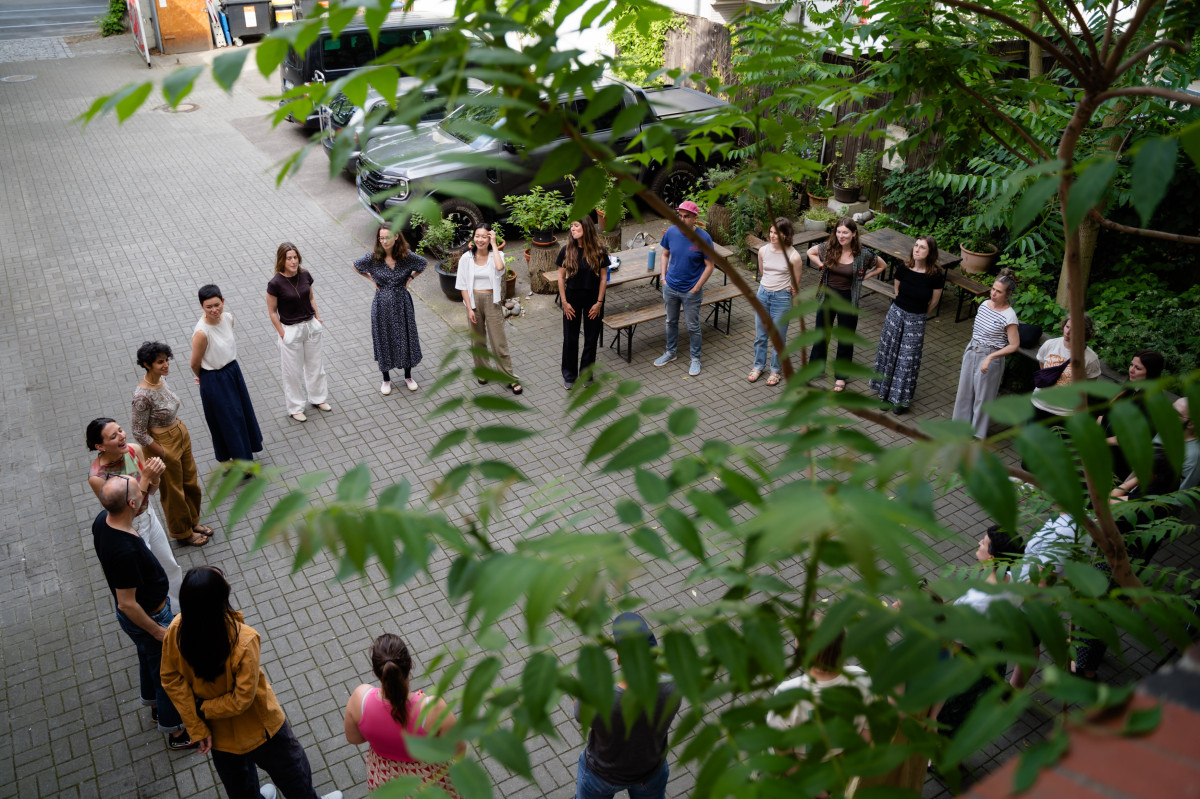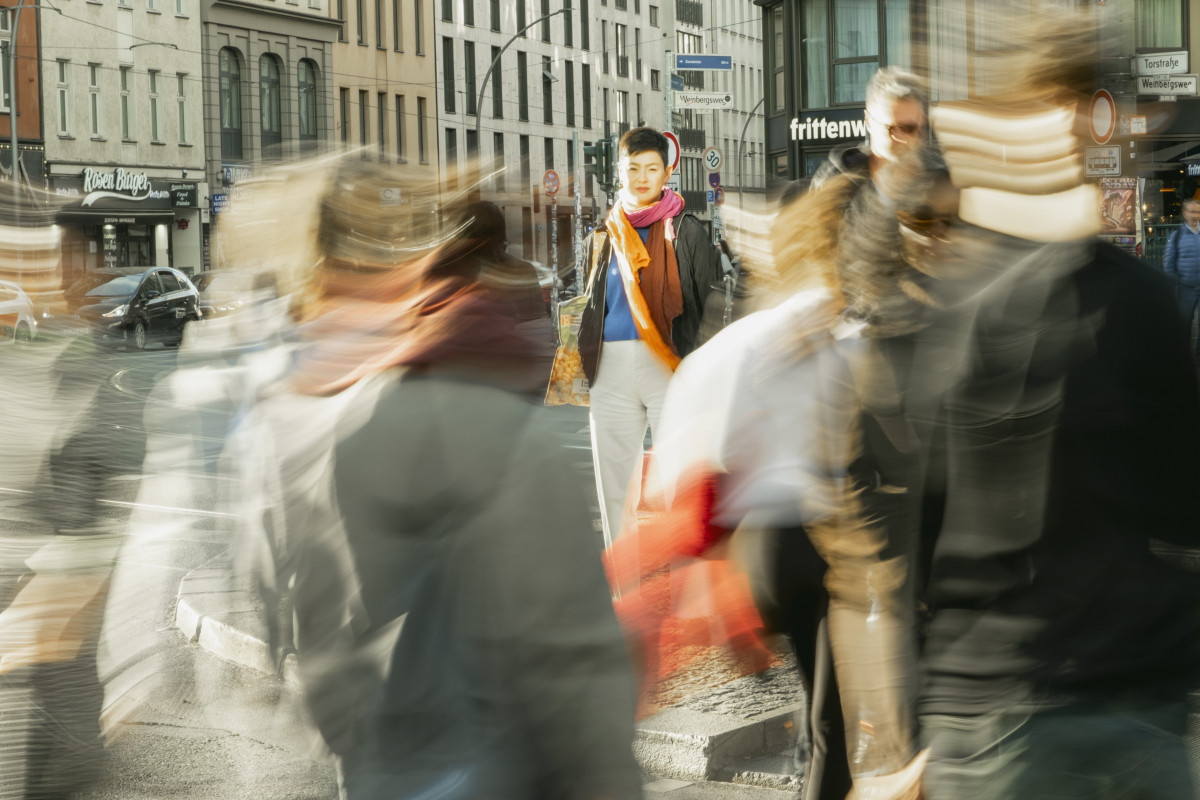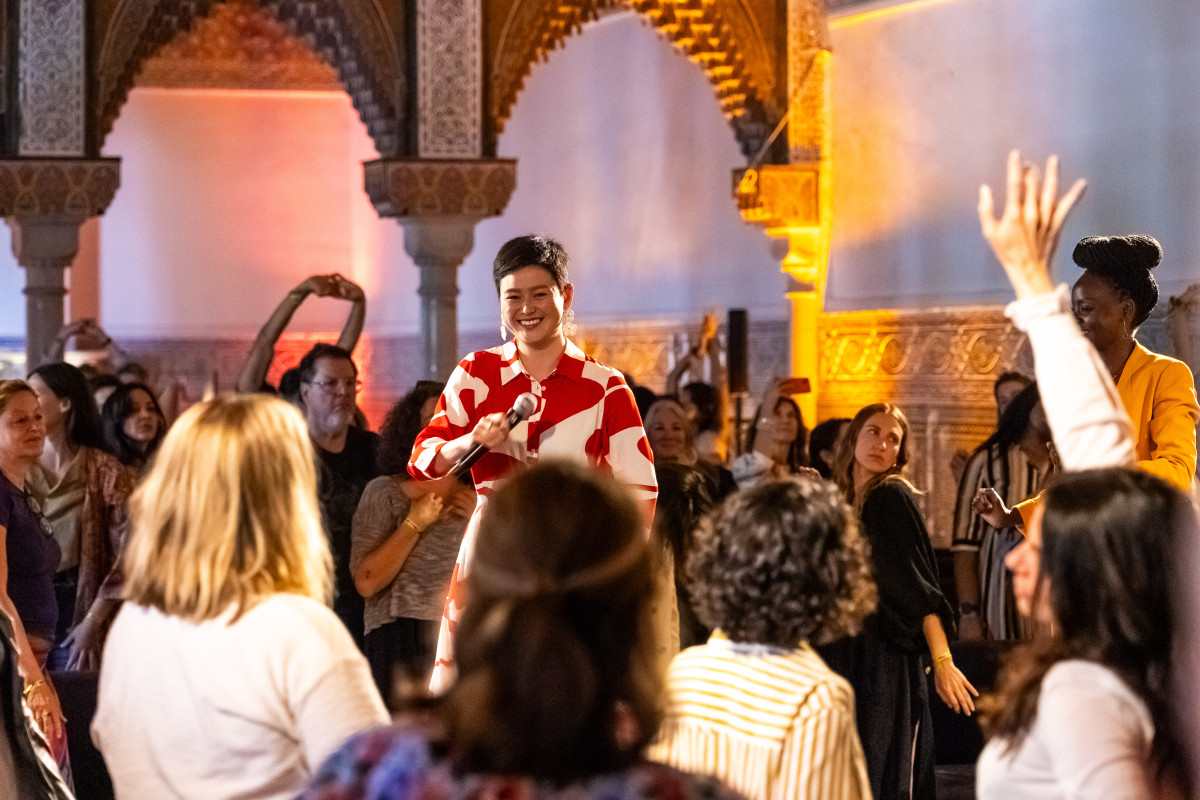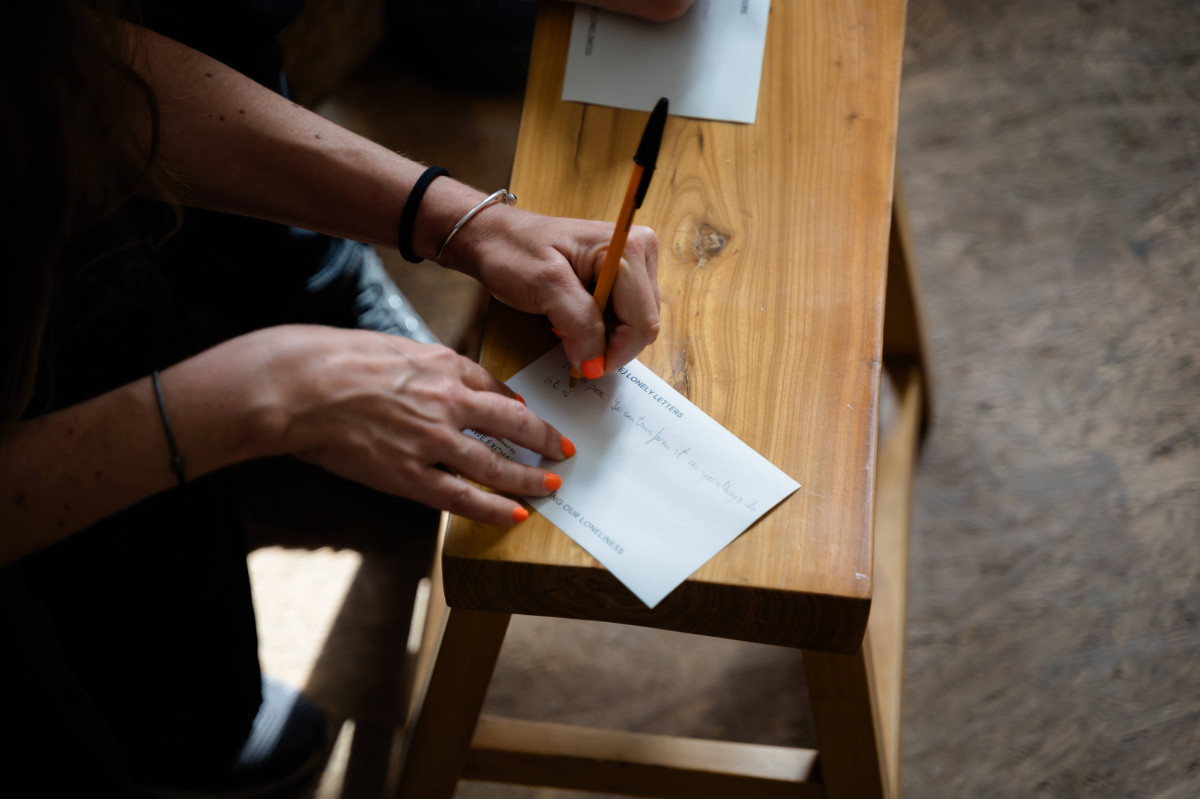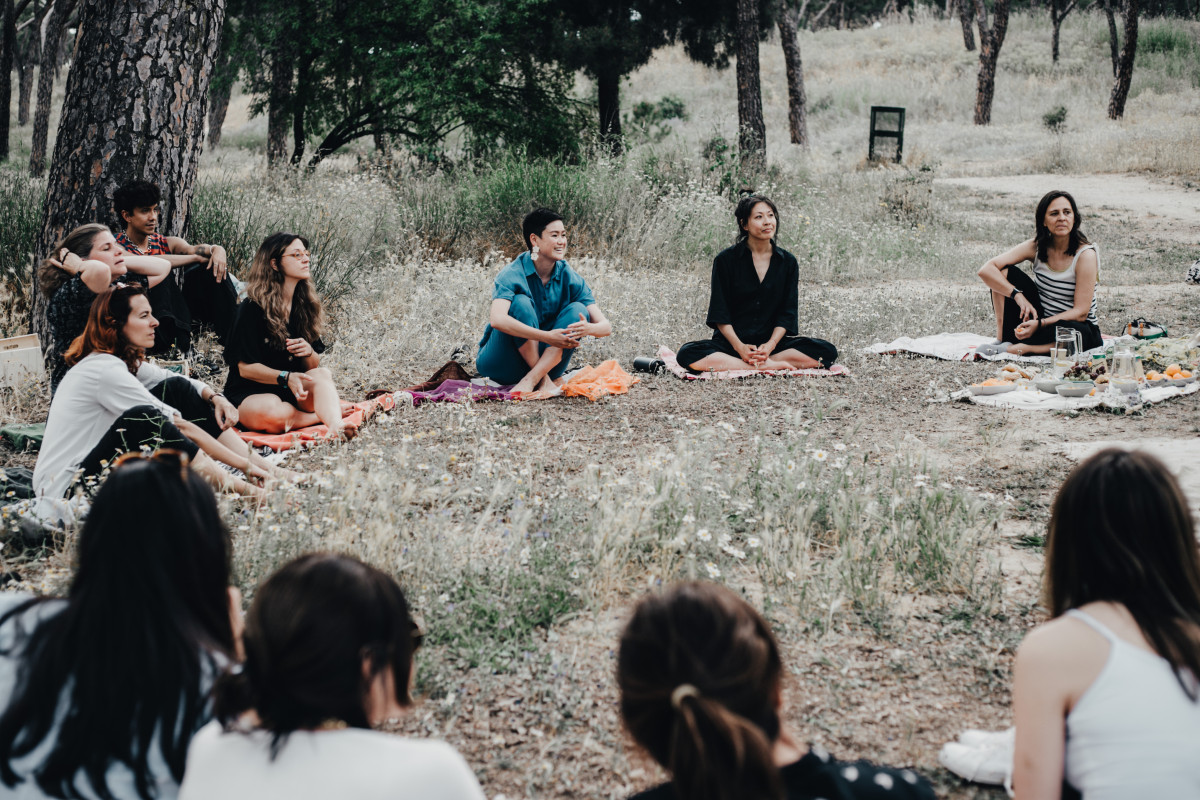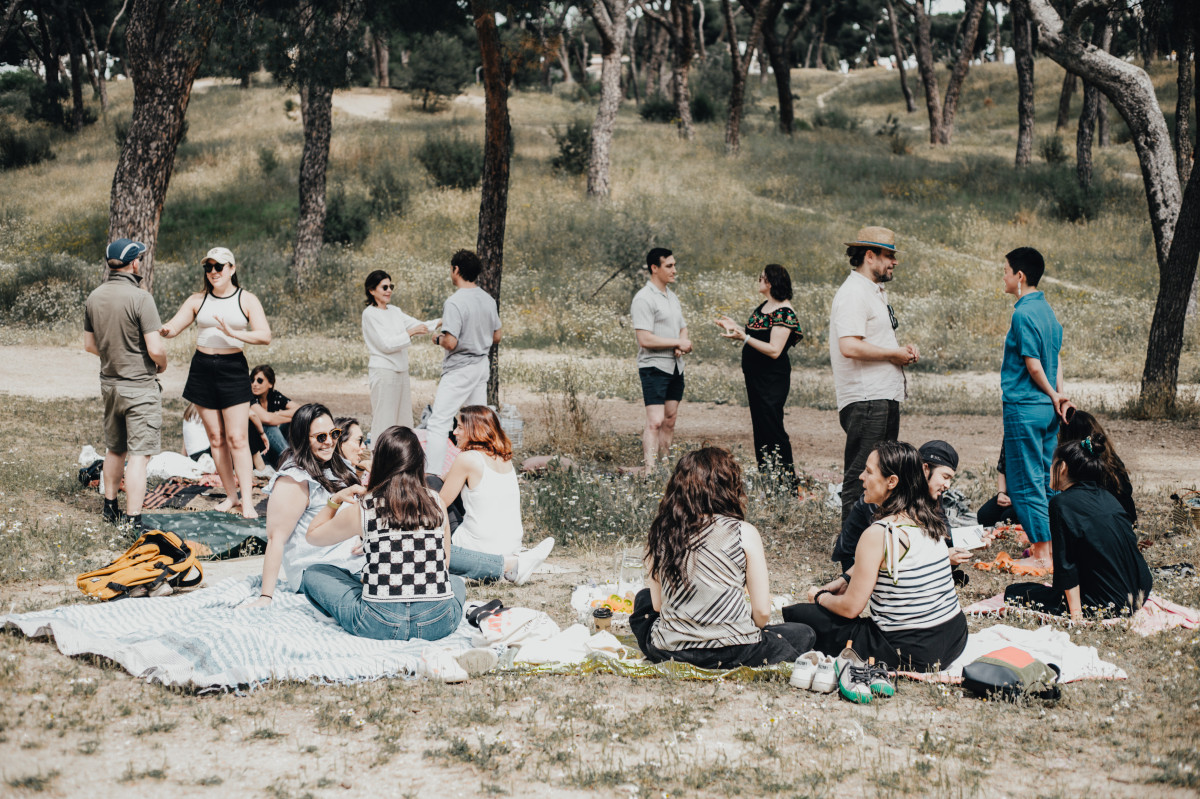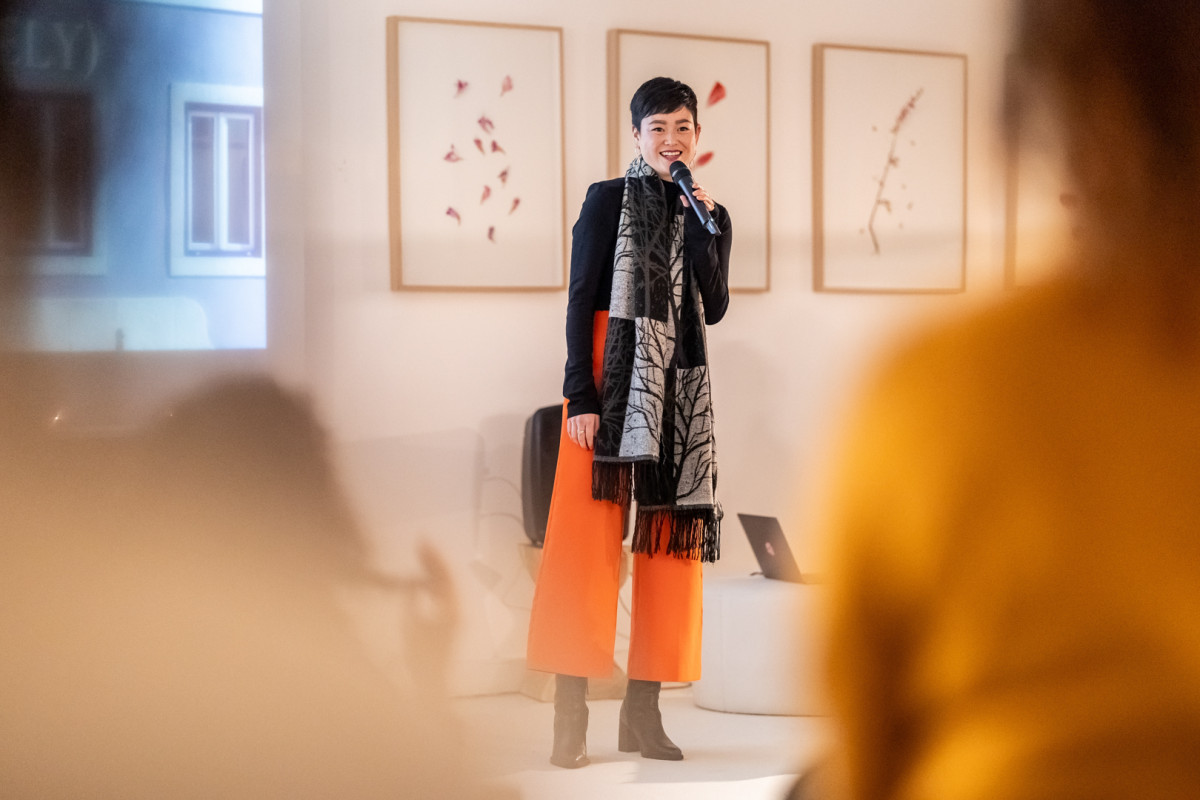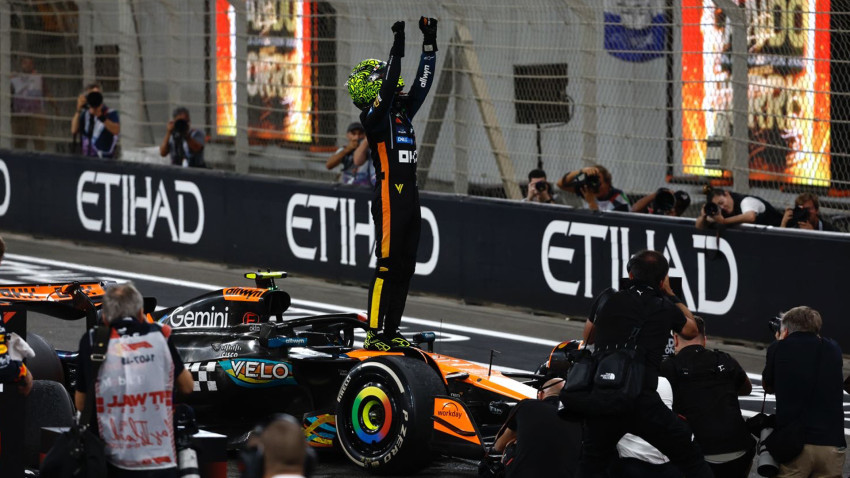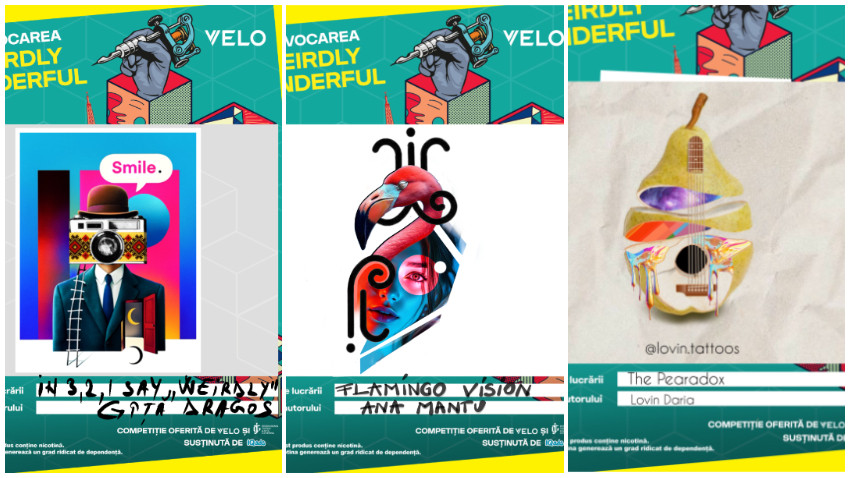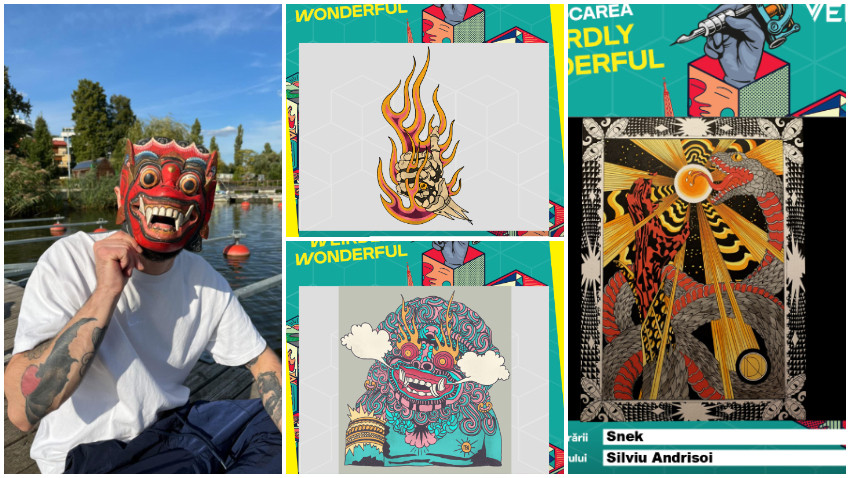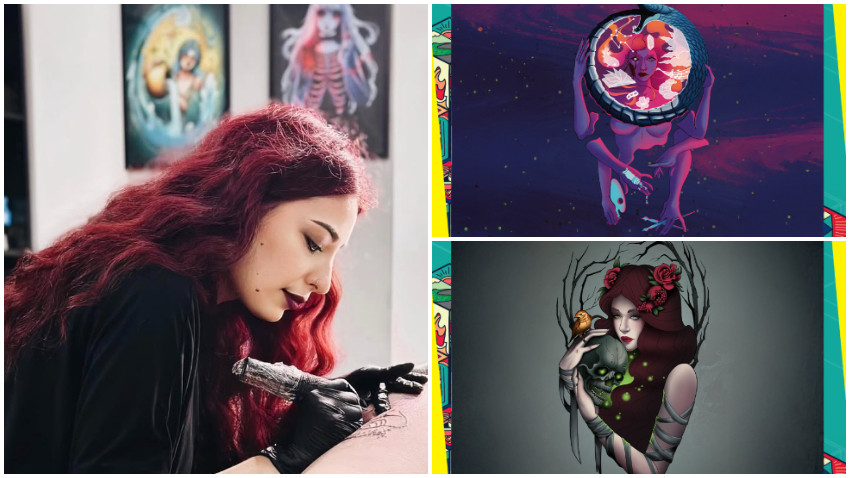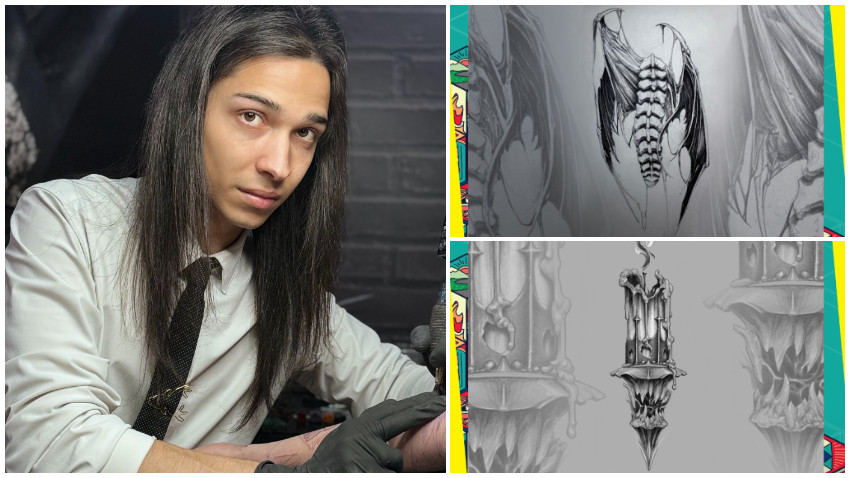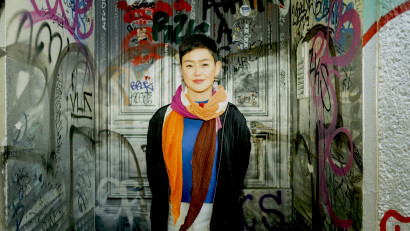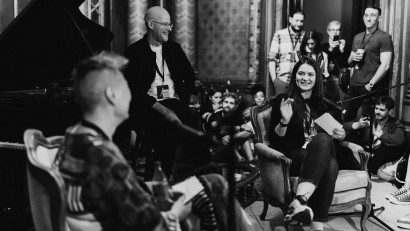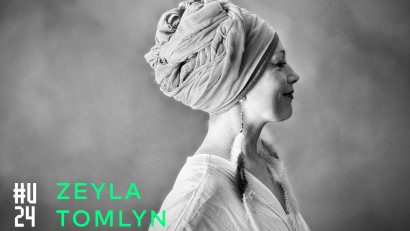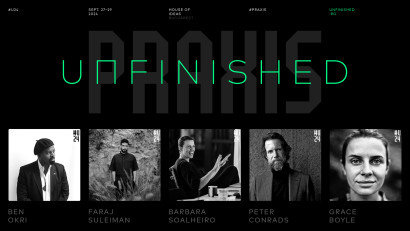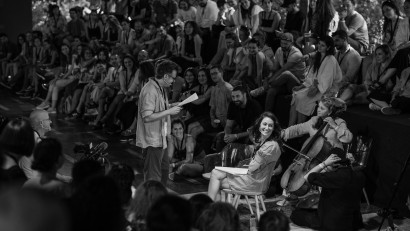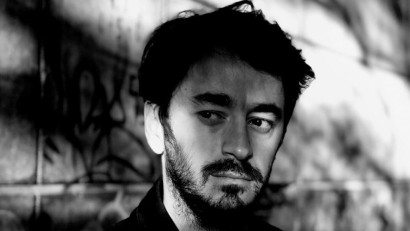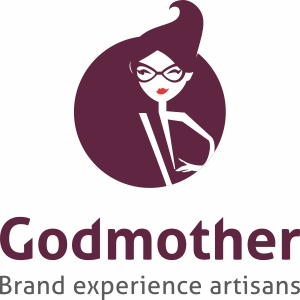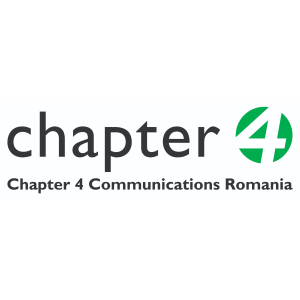How do we start to tend to our individual and collective wounds, in order to move forward? By understanding and sharing our loneliness, believes Monika Jiang. Monika has a background in media and communications and worked in corporate environments, agencies, and youth entrepreneurship programs. She is a teacher in training with Humanize and, for five years, she led as Head of Curation and Community at the House of Beautiful Business.
Through her initiative, Sharing our loneliness, she aims to raise awareness and create a space for dialogue, connection, and community.
"I believe loneliness as an individual and shared experience lies at the core of our collective suffering, political polarization, and more broadly, the separation between ourselves, each other, and all of life around us", says Monika.
Monika Jiang will speak at Unfinished, which runs from September 27-29. This year's theme of the festival is Praxis: connecting theory with practice and how we can transform ourselves from receivers to creators. The only way to participate in UNFINISHED is by completing an application and a selection process carried out by the festival organizers.
We talk with Monika about the power of community, collective trauma and the challenges society faces in 2024.
The most important thing people should know about you
I believe we can only move forward when we choose to heal together, in community.
Key moments in your becoming
My family, in particular my parents and grandmother leaving their home and immigrate to a new country which allowed me to grow up with immense privilege and opportunities. Moving to Berlin. Working with visionaries who became my mentors in my mid-twenties, who believed in me, and gently pushed my comfort zone towards self-discovery. Healing from my first big love by learning to love myself. Becoming self-employed and dedicated to our shared loneliness—which feels like a coming home.
If your life were divided into chapters, what would they be called
More Play. Fitting In. Chaos Inside. Seeking Out. Seeking In. Love, Radically.
How has your perspective on your role changed
I was striving for a lot of recognition and validation from outside, because I so wanted to be seen and feel accomplishment and achievement. I no longer feel the need to do so, because I’ve learned it comes through pushing less, trusting more, and loving what is, rather mourning what isn’t yet.
At the beginning, I took my role and myself way too important, I believed that nothing would fall into the right place without me, lol. Now, to me, writing is a practice of thinking with myself and others, facilitating is creating the conditions for collective flourishing to happen, and community building (or weaving) is a way of creating spaces that allow us to feel again, understand each other, and realize we only exist in relationships.
Your interest in communities
Most consciously probably as my role at the non-profit Thought For Food, where I discovered how much I LOVE to be in community with others, and to help and support others on their journey.
Your definition of "community"
Community is a verb rather than a noun. To me, it’s an act of love, that emerges only in relation between people, sometimes out of momentum, othertimes gradually. Rather than a set status or form, it shape-shifts around shared needs while being open, accessible, and centered around shared participation, ownership, and a commitment of radical care. It empowers and embraces differences, rather striving for sameness. I’m not sure if it needs a “common goal,” but I do believe it needs agreement over a shared reality as a sense of direction.
The most significant changes in developing communities in 2024
It’s hard to tell, because everything claims the term “community,” now. It’s become a bit of a non-word, and in many case, simply a commodity where some kind of “connection” is being sold. Neither connection nor community must be consumed. Yet that’s the world we live in. At the same time, I’m glad to see the rise of neighborhood initiatives, niche-interest groups, intergenerational skill-sharings, etc. that are all communities whose benefit is the basic idea of coming together regularly, often in a common, public space, and giving as an act of service.
What factors are influencing their growth?
The dire need for real human connection in a hyper-connected world amidst social media, AI friends, remote work, and anonymous cities. For some, this might be being part of a global, virtual community, for others it’s returning to a music festival every year, or being part of a local supper club in their city.
The story of Sharing Our Loneliness
I believe loneliness as an individual and shared experience lies at the core of our collective suffering, political polarization, and more broadly, the separation between ourselves, each other, and all of life around us. Therefore, Sharing Our Loneliness is my aim at helping to create understanding of this natural experience that we all uniquely relate to. What’s unique is universal, and where understanding happens, we are in relation—rather in observation. Once we understand, I believe that loneliness, paradoxically, holds the power to reconnect us again.
I started it last November, simply with a newsletter that I’ve been writing ever since. I then started to host community gatherings as explorative grounds for exchange, play, and learning how to connect more meaningfully. I like to think of them as “third places,” that are open, accessible, and break social siloes, per Ray Oldernburg’s definition from the 70s. The mission is to move from loneliness towards oneliness, the idea that we are not alone, but all one.
Your collaboration with Humanize
We’re hosting a community event this coming Saturday on the value and nature of connection amid our digital culture. From October onwards, I’ll be teaching two programs, one online, one in-person in Berlin. After taking part in that program myself earlier this year, I’m in the process of becoming a teacher to help bring this innovative, evidence-based program to other people who seek to cultivate and deepen their connection skills—like resilience, body awareness, empathy, and compassion.
Elements that you consider when preparing your courses
How I can help create the conditions for a container of safety, openness, and fun, that allows folks to learn with their minds, hearts, and bodies. Plus, how to gently nudge individuals to stretch themselves, and lose some of the fear in gaining and receiving support from others, which often stands in the way of true collective flourishing.
Unfinished. Thoughts and Expectations
I’m sooooo excited! It’s my first time at Unfinished and in Romania. Honestly, I have no expectations, I simply want to be there with heart and arms wide open.
What led you to decide to participate in the festival
The genuine, kind, and intentional invitation by the organizers, Christian, Capucine, and team. The moment I received the email and connected via a video call, my gut and heart said: YES.
#Praxis
I love the theme. It speaks to the groundedness I long for. Practice is where we draw the difference between intention, vision, and dream to care, commitment, and reality. I like it because it’s not “just” action, but praxis speaks to an ongoing effort, a process, and something that is learnable through experience, embracing discomfort, and living with paradox. For example, the practice of connection ranges from listening more deeply to speaking your truth, from learning how to apologize to practice forgiveness, from repairing, grieving, and resolving conflict, and nurturing intimacy, and loving fiercely.
The biggest challenges society faces in 2024
How do we start to tend to our individual and collective wounds (trauma), in order to move forward and towards ourselves, each other, and all of life around us?
Your fears. And your hope
There’s nothing that doesn’t concern me. I try to practice gratitude for what is, every day. And to find a moment to have a good, silly laugh. Humour always keeps me alive!
A name for this period we’re living
Falling back together in falling apart.



